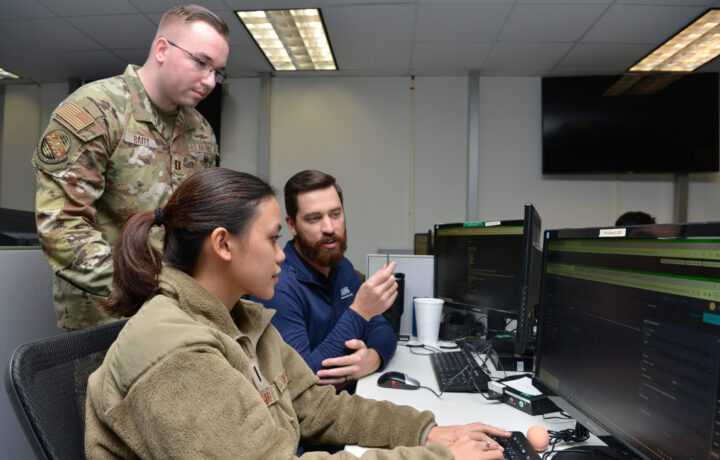Should USCYBERCOM be considered a counterintelligence (CI) organization? This question is increasingly relevant as cyber threats continue to evolve and expand. By examining USCYBERCOM’s roles, responsibilities, and contributions to countering foreign intelligence threats, particularly in cyberspace, one can build a compelling argument that it indeed functions as a critical CI entity.
Defining Counterintelligence
Counterintelligence refers to activities designed to prevent or thwart spying, intelligence gathering, and sabotage by foreign entities. Its primary role is to protect national security by identifying, denying, deterring, exploiting, neutralizing, and defeating foreign intelligence services. This encompasses a wide range of activities, including intelligence collection, covert action, sabotage, and subversion.
Countering Foreign Intelligence
Countering foreign intelligence involves a multifaceted approach:
- Identifying: Detecting foreign intelligence activities and operatives.
- Denying: Preventing foreign intelligence services from accessing sensitive information.
- Deterring: Discouraging foreign intelligence activities through credible threats of retaliation.
- Exploiting: Using foreign intelligence activities to gather information beneficial to national security.
- Neutralizing: Disrupting or dismantling foreign intelligence operations.
- Defeating: Completely thwarting foreign intelligence efforts.
These actions are crucial in safeguarding national interests and maintaining the integrity of intelligence operations.
Cyber Threats and Counterintelligence
Cyber threats posed by nation-state actors are often conducted by their intelligence services. These threats include:
- Intelligence Collection: Gathering sensitive information through cyber espionage.
- Covert Action: Conducting secret operations to influence events or outcomes.
- Sabotage: Disrupting or damaging critical infrastructure and systems.
- Subversion: Undermining the stability and security of a nation through cyber means.
These activities fall squarely within the realm of counterintelligence, highlighting the importance of robust cyber defenses.
Foreign Intelligence Cyber Operations
The intelligence services of China, Russia, Iran, and North Korea conduct extensive cyber operations against the U.S. and its allies, making these operations acts of foreign intelligence services. Chinese cyber actors, often linked to the People’s Liberation Army (PLA) and the Ministry of State Security (MSS), target U.S. critical infrastructure, military networks, and private sector entities to steal sensitive data and intellectual property. Russian intelligence services, such as the Federal Security Service (FSB) and the Foreign Intelligence Service (SVR), engage in cyber espionage, disinformation campaigns, and disruptive attacks against U.S. and allied networks. Iranian cyber actors, including those affiliated with the Islamic Revolutionary Guard Corps (IRGC), conduct cyber operations to gather intelligence, disrupt critical infrastructure, and support ransomware attacks. North Korean cyber units, such as the Reconnaissance General Bureau (RGB), focus on stealing military secrets, conducting financial cybercrimes, and launching disruptive attacks to fund their regime’s activities. These operations underscore the role of foreign intelligence services in cyber threats, necessitating a robust counterintelligence response.
USCYBERCOM’s Role in Counterintelligence
USCYBERCOM plays a critical role in defending against foreign intelligence cyber threats. Its mission includes:
- Defensive Operations: Protecting data, networks, and systems from cyber attacks. This involves detecting, identifying, and responding to threats against friendly networks.
- Offensive Operations: Targeting enemy and hostile adversary activities and capabilities in cyberspace. These operations are designed to disrupt, degrade, and destroy the capabilities of malicious cyber actors and foreign state adversaries.
USCYBERCOM’s efforts are integral to the broader Defense Counterintelligence Enterprise, which encompasses various agencies and organizations working together to protect national security.
Impact and Significance
USCYBERCOM’s impact on counterintelligence is significant. By leveraging its capabilities, the command enhances the nation’s ability to withstand and respond to cyber attacks. It provides policymakers with options to address cyber threats and collaborates with domestic and international partners to identify and stop malicious cyber activity before it threatens critical infrastructure.
While the USCYBERCOM is not traditionally viewed as a counterintelligence organization, its role in countering foreign intelligence threats in cyberspace is undeniable. Its offensive and defensive operations are crucial in protecting national security and maintaining the integrity of intelligence operations. Given its capabilities and contributions, USCYBERCOM should indeed be considered a critical part of the Defense Counterintelligence Enterprise. Its efforts in cyberspace complement the broader counterintelligence mission, making it an indispensable asset in the fight against foreign intelligence threats.




